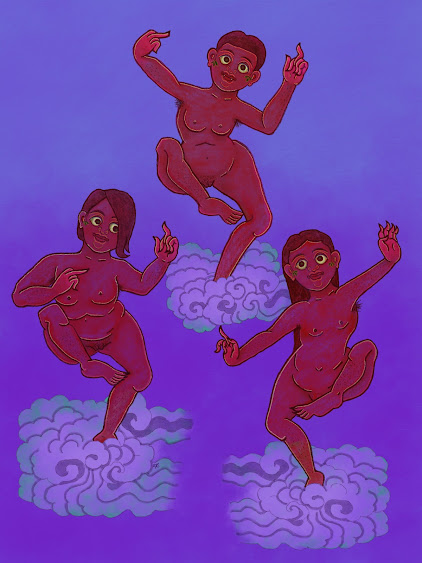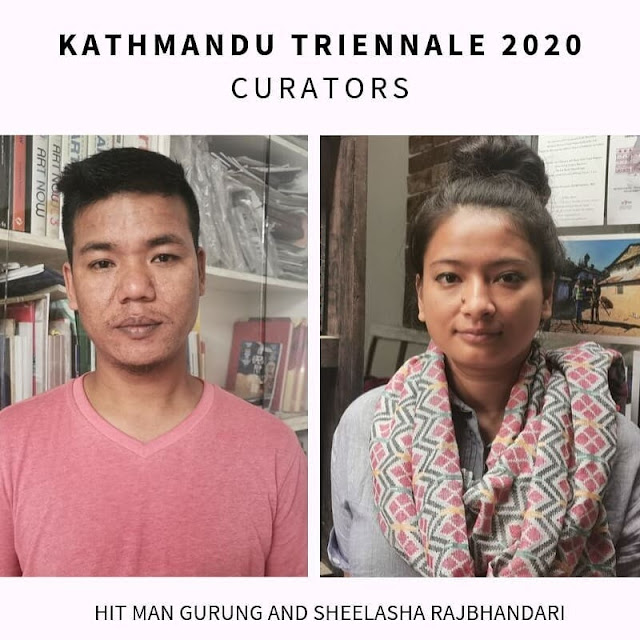Untamable Dankini
"Dakini" or "Dankini" are feminine spirits or women with multifaceted interpretations, spanning a spectrum of meanings including ancestral spirits, grandmother, mother, enlightened beings, repositories of wisdom, mentors, or bestowers of knowledge, sky dancers, nurturers, vessels and bearers of intuitive or transformative energy. They are also perceived as sensual, sexual beings and muses. They are formidable entities with untamable qualities. On the other end of the spectrum they are likened to a demoness, wielding magic, flesh-eating, and most commonly as witches. Depictions of Dakinis and Dankinis vary widely, ranging from monstrous figures with fangs and sharp nails to representations of older women, meditative figures or sexualized nudes. The interpretation of these beings depends on the specific sect, religion, and tradition within which they are situated.
In the current social context, the word "Dankini" is used as a derogatory term for women who are vocal, do not succumb to convention, are independent, are not submissive or even who wear quirky colors. However, for me, Dankinis are queer icons. I would like to acknowledge them as an untamable, feminist entity; yet they have simultaneously been portrayed as protectors, feared for their powers, or even lusted after for their body. The various interpretations of Dankinis underscore how female agency and corporeality become contested political sites for contemporary nation-states; a phenomenon that parallels the dismantling of matricentric landscapes in extractive societies. Irrespective of such connotations, their inherent power remains undeniable.
Dankinis, at times, are associated with male counterparts, but they are not consorts; they are independent women. At other times, they may choose solitude, or present themselves within a constellation of an ungovernable sisterhood. When people hear the word Dankini, mostly there is an instant reaction of giggles, surprise, or discomfort. These reactions may stem from the idea of an untamable nature or unconventional behaviors, which disrupt traditional gender and normative expectations. Additionally, it may also reflect broader societal anxieties that challenge societal norms and power structures.
Uncovering our Indigenous Identities: An Afternoon of Reverie and Art with Untamable Dankini
Let's gather this Saturday afternoon to unravel the layers of history, memory, and culture that shape us, and take some time to acknowledge and externalize the complexities of our Indigenous identities through scribbling, coloring, cutting, pasting, and stitching.
'Untamable Dankini' is primarily a closed group session that acknowledges how pain, resistance, love, history, memory, epistemology, and cosmological lineages are passed down within Indigenous and marginalized communities. It also aims to deconstruct the boundaries of patriarchal, binary, gendered world, while recognizing syncretism and hierarchies practiced by and within these communities. Dankini is an initiative by Sheelasha Rajbhandari, an artist, curator, and cultural organizer. She is one of the founding members of Indigenous artist collective Artree Nepal and Kala Kulo.
This event is co-organized by Forum for Indigenous Girls and Kala Kulo





.jpeg)






Comments
Post a Comment